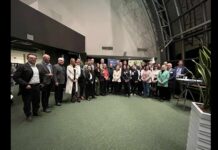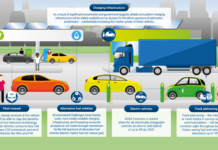The chair of this working group is TBC in October.
The “Rural Development and Tourism” working group can play a significant role in fostering sustainable economic growth and preserving the cultural and natural heritage of rural areas. This working group’s activities should aim to enhance the quality of life in rural communities while promoting responsible tourism practices. Here are some potential actions and initiatives that this group will undertake:
-
Community Engagement and Empowerment:
- Facilitate community involvement in decision-making processes related to rural development and tourism.
- Empower local residents to actively participate in shaping the future of their communities.
-
Tourism Promotion:
- Develop and implement marketing campaigns to promote rural tourism destinations, highlighting their unique cultural and natural attractions.
- Collaborate with local businesses to offer tourism packages and experiences that showcase the area’s authenticity.
-
Infrastructure Improvement:
- Advocate for and invest in infrastructure development in rural areas, including road maintenance, public facilities, and tourism-related amenities (e.g., visitor centers, hiking trails).
-
Sustainable Agriculture and Farm-to-Table Initiatives:
- Support sustainable agricultural practices and farm-to-table initiatives that connect local farmers with restaurants and consumers.
- Encourage the development of farmers’ markets and agri-tourism experiences.
-
Cultural Preservation:
- Preserve and promote the cultural heritage of rural communities through initiatives like cultural festivals, heritage tours, and arts and crafts programs.
-
Eco-Tourism and Nature Conservation:
- Develop eco-tourism programs that emphasize responsible and nature-friendly tourism practices.
- Collaborate with conservation organizations to protect and restore natural habitats and wildlife.
-
Skills Development and Training:
- Provide training and capacity-building programs for local residents, including hospitality and tourism-related skills.
- Support entrepreneurship and small business development.
-
Tourism Infrastructure Assessment:
- Assess the readiness of rural areas to accommodate tourists and identify areas for improvement in terms of accommodations, transportation, and services.
-
Tourism Education and Awareness:
- Educate tourists about responsible and respectful behavior in rural areas, emphasizing the importance of preserving the environment and respecting local customs.
-
Heritage Preservation:
- Implement heritage preservation projects, including the restoration of historical buildings and landmarks.
- Create heritage trails and interpretive signage to educate visitors about the area’s history.
-
Community-Based Tourism:
- Promote community-based tourism initiatives that directly involve local residents in offering authentic experiences to visitors.
-
Tourism Partnerships:
- Establish partnerships with regional tourism boards, travel agencies, and tour operators to increase the visibility of rural destinations.
-
Cultural and Natural Resource Management:
- Develop strategies for sustainable management of cultural and natural resources to prevent overexploitation and degradation.
-
Accessibility:
- Advocate for improved transportation options to make rural areas more accessible to tourists, including public transit and cycling routes.
-
Data Collection and Analysis:
- Collect data on tourism trends, visitor demographics, and economic impacts to inform decision-making and tourism development strategies.
-
Sustainable Events and Festivals:
- Organize sustainable events and festivals that attract tourists while minimizing their environmental footprint.
-
Tourism Safety:
- Ensure the safety of tourists by providing information on potential risks and safety measures in rural areas.
-
Networking and Collaboration:
- Collaborate with other rural development organizations, government agencies, and NGOs to leverage resources and expertise.
-
Financial Support and Grants:
- Seek funding opportunities and grants to support rural development and tourism projects.
-
Monitoring and Evaluation:
- Continuously monitor the impact of tourism on rural communities and make necessary adjustments to ensure long-term sustainability.























